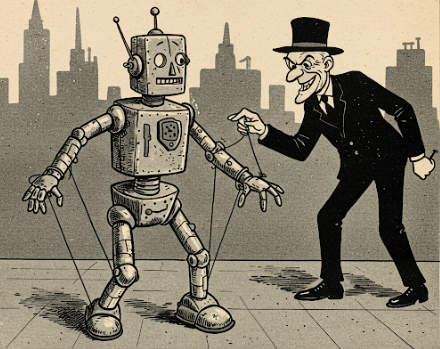· Awe-Source · 5 min read
The Current Landscape of Data Ownership

Who Owns Your Data? (Hint: Not You)
In the digital age, there’s one currency more valuable than gold, oil, or even Bitcoin: data. Yep, the stuff you generate every time you tap “Accept All Cookies,” binge-watch your favorite show, or even Google what that weird rash might be (no judgment here). But who actually owns all this data? Spoiler: it’s not you.
Let’s talk about how this happened, why it’s kind of a big deal, and why, despite widespread agreement on the need for a “better way,” we seem stuck in the current system.
Right now, the answer is pretty straightforward: everyone but you.
Companies—big ones, small ones, even some you’ve never heard of—are collecting your data constantly. Every online search, app click, or social media post adds another breadcrumb to the massive digital trail you leave behind. These companies don’t just sit on your data, either. They analyze it, package it up, and use it to optimize their services, sell you stuff, or—more often than not—sell you as part of the product.
The catch? Most of us agreed to this somewhere in a 47-page terms and conditions document we didn’t read. (Let’s be honest, no one does.)
Why This Matters
At first glance, it doesn’t sound all that bad. So what if Netflix knows your favorite genre is “cozy murder mysteries” or Spotify keeps suggesting ‘80s power ballads?
But here’s the thing: your data doesn’t just tell companies what you like—it tells them who you are.
This data is used to make decisions about your life, sometimes without you even realizing it. It can determine the ads you see, the job offers you get, and even your eligibility for loans or insurance. And because you don’t own your data, you have little say in how it’s used—or misused.
The Roadblocks to Change
By now, most people agree that the current model is broken. The idea of empowering individuals with control over their own data sounds great on paper, but turning that idea into reality is a whole other story. Why? Let’s unpack some of the key challenges:
1. Commercial Roadblocks
Let’s face it: the companies profiting from your data aren’t exactly lining up to hand over control. Allowing individuals to own and manage their data would mean significant disruption to their business models. These corporations thrive on proprietary silos of information, which are incredibly lucrative and keep competitors at bay.
Interoperability—the dream of a seamless, secure system where data flows easily between services for the benefit of the user—offers huge societal benefits. It could reduce redundancy, improve data quality, and open doors to innovation. But from the incumbents’ perspective, interoperability means giving up control, which they’re not eager to do.
2. Greed and Misinformation
Where there’s change, there’s opportunity—and not always the good kind. Efforts to create systems for personal data ownership often attract opportunistic players who see dollar signs instead of societal progress.
Whether it’s through misinformation campaigns, half-baked products designed to “cash in,” or schemes to dominate market share, these actors muddy the waters. They exploit confusion and fear—“What happens if you lose control of your data?”—to stall meaningful progress or push self-serving solutions.
3. Too Many Opinions, Too Many Frameworks
Even among the well-meaning folks trying to fix the system, disagreements abound. What’s the “right” way to implement data ownership? Should it rely on blockchain? Should there be centralized oversight? Should it be fully decentralized?
The result is often what we’ve seen in other tech spaces: too many competing frameworks that fragment efforts rather than unify them. If you’ve ever seen this XKCD comic about the problem of “standards”, you’ll know exactly what we’re dealing with here.
Is There Hope for a Better System?
Not all is lost. Despite these roadblocks, there’s momentum building for change. Conversations around data privacy, ownership, and ethical use are gaining traction, and people are starting to demand better systems.
One potential solution is the idea of a personal data wallet. Imagine having a central hub where all your data lives—a place you control, with the power to decide who gets access and for what purpose. Want to share your shopping habits with a retailer in exchange for discounts? Sure. Want to keep your medical history private? Done.
The tech to make this happen exists—blockchain, for example, offers a decentralized way to manage data ownership—but as promising as it sounds, implementation remains messy, plagued by the very problems we just discussed.
Where Do We Go From Here?
The future of data ownership could go one of two ways:
- The Status Quo: Companies continue hoarding and monetizing your data, and we keep handing it over in exchange for convenience.
- A Shift in Power: Individuals take control of their data, deciding when, where, and how it’s used.
Option two won’t be easy, but it starts with awareness. The more we push for transparency, accountability, and user-centric systems, the closer we get to a world where data serves us, not the other way around.


